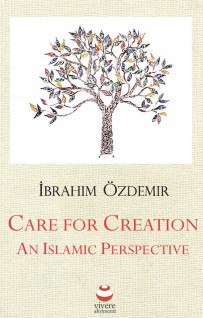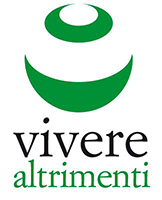Care for Creation; An Islamic Perspective. Forword

The forword to the last book published by Viverealtrimenti: Care for Creation; An Islamic Perspective, authored by Turkish Professor İbrahim Özdemir. The book is available both in paper and digital format.
«We are facing a global emergency. Our scientists tell us that human-induced climate change brought on by the burning of fossil fuels has taken the human race and our fellow species into the sixth mass extinction event of life on Earth»[1].
This is the alarming warning at the beginning of Jeremy Rifkin’s book The Green New Deal but the main purpose of the author — a well-reputed scholar who wrote over twenty books about the impact of scientific and technological changes on the economy, the workforce, society, and the environment — is to be constructive, more than simply critical, concretely encouraging the transition to a more sustainable world. In fact, he proceeds to present a rich amount of data showing how “within the next eight years, solar and wind will be far cheaper than fossil fuel energies, forcing a showdown with the fossil fuel energy”.
It may be early to confirm whether we are prepared for a transnational Green New Deal. However, it is both clear the planet could survive this critical period and that everybody should be willing to contribute!
In other words: there is no time to waste complaining and fearing an imminent catastrophe; we must all do our best to promote a paradigm shift. It is a shared duty!
Muslims, all over the world and more than other people, are compelled to contribute to implementing a Green New Deal.
It is well known that Islam is the fastest growing religion today, with around 1.8 billion people.
Therefore, a greater engagement within Muslim organizations focusing on and addressing environmental issues will have relevant implications.
Doing research on “Green Islam”, as a member of the Green team of the Muslim Council of Britain, I found online and then met in person (in Bologna — Italy — in October 2021) Professor İbrahim Özdemir. More precisely, I have initially found his article with Al Jazeera[2], where he claimed that:
«Many Muslim majority countries bear the brunt of climate change, but their cultural awareness of it and climate action are often staggeringly limited. A movement of Islamic environmentalism based on Islamic tradition — rather than imported white saviour environmentalism based on first-world political campaigns — can address both».
Indeed the relationship between Islam and ecology is more profound than the average person can guess.
Nowadays, this issue is still poorly discussed. Still, we can easily affirm, following authors such as Seyyed Hossein Nasr, Ibrahim Abdul Matin, Fazlun Khalid, and İbrahim Özdemir himself, that Islam is a genetically environmentalist religion!
We have not to forget — as Abdul Matin highlights in his book Green Deen: What Islam Teaches About Protecting The Planet — that one of the fundamental principles of Islam is Mizan: balance; a general concept including, of course, the duty to find a virtuous balance with the environment surrounding and supporting us with whatever we need to survive and, potentially, to have a pleasant life. That is to say: with God’s creation.
«In the name of God, the Gracious, the Merciful.
The Compassionate. Has taught the Qur’an. He created man. And taught him clear expression. The sun and the moon move according to plan. And the stars and the trees prostrate themselves. And the sky, He raised, and He set up the balance. So do not transgress in the balance. But maintain the weights with justice, and do not violate the balance».
(The Holy Qur’an, 55:1-9)
It is evident from the above discussion that justice and balance are universal laws [of God] and that (as a result) humans should conduct a just and balanced life.
When we reflect on the moral implications of these verses, we will see that these verses alone would be enough for developing an environmental ethic and sustainability from the Qur’an itself.
First, justice and balance are universal; second, this universal balance is created and sustained by God, and third, humans must both attempt to comprehend this universal balance.
Therefore, to achieve a virtuous balance between man and the environment, some Islamic theorists and organizations are constantly working to stem the harmful effects of climate change, inaugurating a global Green New Deal.
To give some practical examples, in 2015 it has been, drafted The Islamic Declaration on Global Climate Change fully reported in the Appendix of the book (on line you can find it here).
Two members of the Islamic Declaration Team — Professor İbrahim Özdemir and the Sri Lankan Scholar living in the UK, Fazlun Khalid — are also involved in the international project (supervised by UNEP) Al-Mizan: A Covenant for the Earth.
Quoting from the respective website[3]:
«Al-Mizan: A Covenant for the Earth presents an Islamic outlook of
the environment in a bid to strengthen local, regional, and international actions that combat climate change and other threats to the planet. It is a global endeavour to engage Islamic scholars and Muslim institutions in developing and adopting this Call.
Al-Mizan: A Covenant for the Earth is a restatement of the principles governing the protection of nature in a form that meets current challenges. It examines the ethics behind the social patterning of human existence. It enquires into how they could be brought to life today, working in harmony with the heartbeat of the natural world.
Environmentalism is deeply embedded in the veins of Islam.
It is about personal behaviour and how it manifests in our association with others. It is also about being considerate in our relationship with the natural world and other sentient beings.
These principles grew from the foundations established by Prophet Muhammad into a range of rules and institutions that manifested an expression of a genuinely holistic life. It was based on the Qur’an, and it could be distilled into three categories, namely encouraging public good, forbidding the wrong action, and acting in moderation at all times:
“Let there be a community among you that calls for what is good, urges what is right and forbids what is wrong, they are the ones who have success”
(The Holy Quran, 3: 104)».
There are also numerous Islamic organizations at the international level constantly engaged in safeguarding the environment.
We can offer here a short list including only a fraction of them:
Green Muslims: A volunteer-driven headquartered in metropolitan Washington, DC, working to connect Muslims everywhere to nature and environmental activism.
They host educational, service, and outdoor recreational events and strive to serve as a bridge connecting the Muslim community with local climate action organizations. https://www.greenmuslims.org/
Muslim Global Relief: Awarded the UK’s Best Charity of 2018 at the National British Muslim Awards and finalist for 2019. MGR works in remote villages across Ghana, Indonesia, Pakistan, Gambia, India, and Palestine. MGR brings them sustainable development solutions through the Big Muslim Fund, such as safe water, planting fruit trees, and sponsorship of orphan education. https://www.muslimglobalrelief.org/
Muslim Hands: An international aid agency and NGO working in over thirty countries worldwide, with projects prioritizing environmental sustainability. https://muslimhands.org.uk/home
Khaleafa: A “sacred trust” based in Canada whose goal is to reignite the discourse surrounding the Islamic approach to environmentalism and draw upon these teachings’ essence. http://www.khaleafa.com/
Wisdom in Nature: A UK-based network offering team training in Inclusive Leadership and Facilitation, Permaculture, and Islamic Ecology. https://www.wisdominnature.org/
Green Prophet: Headquartered in Ontario, Canada, with satellite offices in Amman and Tel Aviv, the Green Prophet is a trusted source for green design, architecture, lifestyle, policy, and renewable energy news in the Middle East.
It was founded by biologist, journalist, and technology entrepreneur Karin Kloosterman, whose work and commentary have appeared on major international media, such as Bloomberg, Discovery Channel, CNN, The Washington Post, Al Jazeera, and many more platforms. https://www.greenprophet.com/
The Eco-Muslim: It is part of Zaufishan Iqbal’s “eco-jihad,” a greener effort to ensure our community is cleaner than before. Zaufishan encourages everyone to live on less by following the 4Rs: Reuse! (e.g., leftover water) Reduce! (How much food you waste) Recycle! (Your unwanted clothes) Reject! (Poverty, homelessness, and exploitation) Insha-Allah (God willing)”. https://www.theecomuslim.co.uk/
In conclusion, we can comfortably say the Muslim world is, in several ways, “caring about creation,” but, of course, due to the dramatic complexity of the actual lack of balance (Mizan) between Man and Nature (to quote the title of a crucial book on the relation between Islam and ecology, authored by Seyyed Hossein Nasr), a lot of extra work should be quickly done.
Professor Özdemir in one of the most active environmentalists worldwide, that’s why I’m honoured to support him in publishing this book with the hope his theoretical effort will inspire several new concrete initiatives to protect our wonderful environment, flora, and fauna, the stupendous creation that God has deliberately entrusted to us.
Indeed he gave us, as we will see in the following pages, the role of Khalifa: protectors of nature, a gift we should never betray!
I definitely wish you a pleasant and inspirational reading!
Manuel Olivares
[1] Jeremy Rifkin, The Green New Deal, 2019, p. 1.
[2] You can read the full article here:
https://www.aljazeera.com/opinions/2020/8/12/what-does-islam-say-about-climate-change-and-climate-action.
[3] https://www.unep.org/al-mizan-covenant-earth

 English
English Italian
Italian